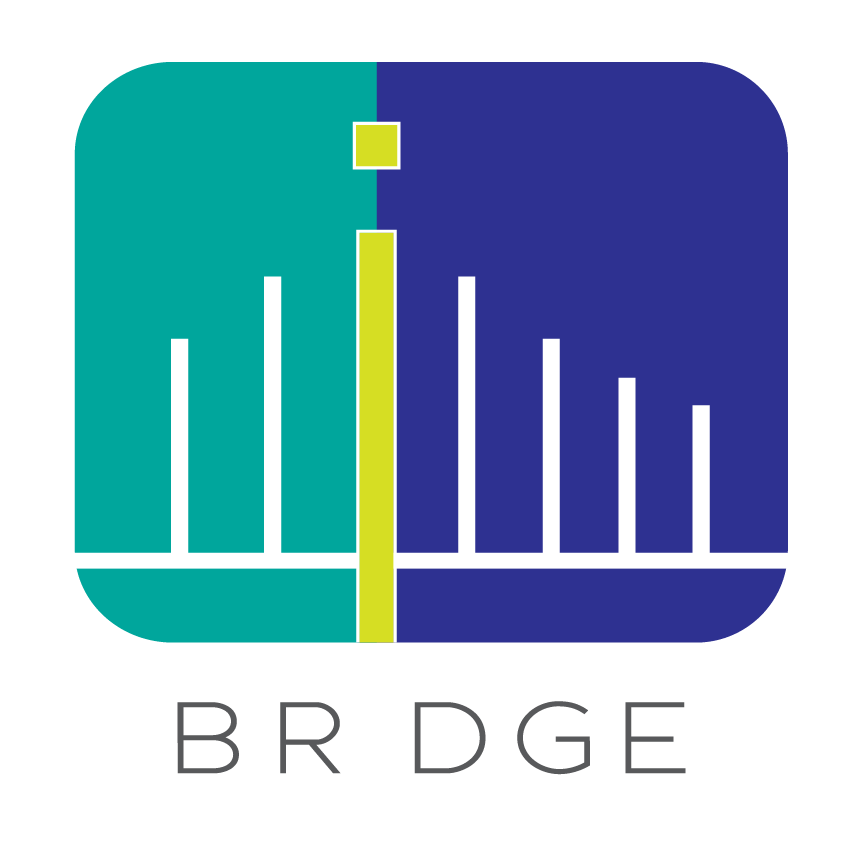Guide to Budget 2022 Measures for SMEs in Singapore
 In Singapore’s Budget 2022 statement, Minister Lawrence Wong detailed that Singaporeans will see higher expenditure linked to rising costs of healthcare, and underscored the need to guide Singapore towards a carbon-neutral and high-tech world. He put forth the case for higher taxes but also offered relief measures. For businesses, Covid-19 packages will be scaled back given that the economy has rebounded, despite ongoing risks.
In Singapore’s Budget 2022 statement, Minister Lawrence Wong detailed that Singaporeans will see higher expenditure linked to rising costs of healthcare, and underscored the need to guide Singapore towards a carbon-neutral and high-tech world. He put forth the case for higher taxes but also offered relief measures. For businesses, Covid-19 packages will be scaled back given that the economy has rebounded, despite ongoing risks.
If you’re reading this as a small and medium-sized enterprise (SME) owner, you might be wondering: How will Budget 2022 affect you directly? Aside from the hyped GST voucher 2022 and upcoming GST increases in 2023 and 2024, what are some changes in policies and support measures in the country’s budget plan targeted at SMEs? Let’s dive into them.
Budget 2022 for SME businesses (employers)
Singapore is transitioning towards endemic living. The government will continue to open up and relax restrictions in the absence of more threatening variants. This means that despite rising cases, the population will return to restaurants, shops, and offices in the coming months.
For businesses that are still hard-hit by ongoing Covid-19 restrictions, Budget 2022 announced immediate support through the $500 million Jobs and Business Support Package and extended some existing measures from the 2020 and 2021 Budget plans (with some changes). However, these support programmes will gradually be withdrawn at pace with economic recovery.
At the same time, the government announced that it will set aside $200 million to help businesses build digital capabilities, and $600 million to scale up productivity solutions for local enterprises.
Here are all the SME-related measures in Budget 2022:
| Budget 2022 measures | Benefits to SMEs |
| Small Business Recovery Grant
One-off payout per employee or firm |
$1,000 per local employee (up to $10,000 per firm) in sectors hard hit by Covid-19 restrictions
$1,000 payout to local sole proprietors and partnerships in eligible sectors and SFA-licensed hawkers, market, and coffeeshop stallholders (who do not hire local employees) |
| Jobs Growth Incentive
For employers that increase their overall local workforce between September 2020 and September 2022, the government pays out a percentage of gross monthly wages. |
Extended for six months to September 2022
Extension will not cover non-mature workers. Only covers mature workers aged 40 and above who have not been employed for six months or more, persons with disabilities (PwD) and ex-offenders. Stepped down rates to be announced. Under the ongoing Phase 3 (Oct 2021 to March 2022), employers get up to 15% of first $5,000 of gross monthly wages for six months for non-mature workers and up to 50% of first $6,000 for 12 months for mature workers, PwD and ex-offenders. |
| Temporary Bridging Loan Programme
Working capital loans, specifically for ACRA-registered business entities that are based in Singapore, from participating banks |
Extended for six months to 30 September 2022
$1 million per borrower from 1 April 2022 to 30 September 2022, at 5.5% p.a. Maximum loan quantum set at $20 million. Note: Down from $3 million per borrower (up until 31 March 2022), at 5.0% p.a. |
| Enhanced Enterprise Financing Scheme – Trade Loan (EFS-TL)
EFS Trade Loan covers enterprises’ domestic and overseas transactions to support trade needs |
Extended for six months to 30 September 2022
$5 million per borrower from 1 April 2022 to 30 September 2022. Maximum loan quantum is $20 million. Interest rate subject to assessment. Note: Down from $10 million per borrower (up until 31 March 2022) |
| Enhanced Enterprise Financing Scheme – Project Loan (EFS-PL) Eligible for Singapore enterprises in the construction sector. Helps to finance the fulfillment of secured overseas projects. | Extended for until 31 March 2023
Maximum loan quantum is $30 million per borrower or borrower group for domestic projects, $50 million for overseas projects. *Not for general working capital. |
| Enterprise Financing Scheme – Merger & Acquisition (EFS – M&A)
Loans supports enterprises to scale and expand through M&A – including venturing into complementary businesses and emerging sectors. |
Enhanced for 4 years, from 1 April 2022 to 31 March 2026
Up to $50 million per borrower or borrower group. |
| Aviation Support Package
Wage support for aviation sector |
Aviation Workforce Retention Grant extended to March 2022
Expected to benefit more than 100 companies, who will receive 30% support for the first 4,600 of gross monthly wages to be paid to Singaporeans or PR. |
| Productivity Solutions Grant
Helps companies automate existing processes and improve productivity. Up to $600 million dedicated to 100,000 PSG projects over the next 4 years |
Annual grant cap of S$30,000 per financial year per business for IT solutions targeted at customer management, data analytics, financial management and inventory tracking. |
| Building Digital Capabilities Up to $200 million | Advanced Digital Solutions scheme: Helps firms adopt cutting-edge digital solutions such as in robotics.
Grow Digital scheme: Helps businesses access overseas markets digitally. More details to be confirmed. |
As the table shows, eligible SMEs can immediately benefit from the Small Business Recovery Grant, which offers $1,000 payout per local employee (up to $10,000 per firm). The SME payouts are for companies in sectors most affected by COVID-19 restrictions; as well as $1,000 payout to local sole proprietors and partnerships in eligible sectors, and SFA-licensed hawkers, market, and coffeeshop stallholders, who do not hire local employees.
At the same time, the existing Job Growth Incentive will be extended to September 2022 to encourage hiring of workers who face greater difficulties in finding jobs. However, while this incentive applied to all workers in 2020 and 2022, the six-month extension will apply only to mature workers (40 and above), persons with disabilities and ex-offenders. The exact stepped-down rate is not confirmed yet.
For SMEs in need of working capital, the government will be extending the temporary bridging loan programme and enterprise financing schemes, with revised parameters. For most of these schemes, only ACRA-registered entities based in Singapore can apply through participating banks and financial institutions.
The SME loan programmes are attractive because they offer low interest rates without any collateral required. There is also no repayment penalty, giving ample time for business recovery. This is because the government risk-shares in 50% to 70% of the loan, depending on the profile of the borrower. However, given that the economy is quickly recovering, such schemes won’t be around forever. In fact, by the third quarter of this year, most might be discontinued.
What other alternatives do SMEs have then if they are still in need of working capital? Traditional working capital loans require lengthy application processes and smaller businesses tend to get rejected. A possible alternative is taking an SME loan through a debt-based crowdfunding platform, which matches SMEs with retail investors, who can back SMEs. SMEs get the necessary working capital they need and investors receive interest payments when the business repays the loan.
Aside to the loan programmes, Budget 2022 states that SMEs can also benefit from the Productivity Solutions Grant (PSG), which will have $600 million dedicated to it over the next four years. Productivity Solutions Grant can be used to offset things like laptop costs and digital marketing solutions from external vendors. There will be further government subsidies offered through the Advanced Digital Solutions Scheme and the Grow Digital Scheme, with a total of $200 million dedicated to building digital capabilities.
Now, let’s look at other relevant changes that will impact SME businesses.
Budget 2022 for employees: Do SMEs benefit?
Measures targeting employees in Singapore naturally affect SMEs. The most significant impact is that the cost of hiring foreign workers will increase. This is because salary thresholds for Employment Pass and S Pass holders will be revised.
SMEs in the services sector that rely on foreign workers for manpower will be significantly impacted as employers will need to pay more. Employment Pass qualifying salaries will be raised to $5,000 ($5,500 for financial services) and the minimum qualifying salaries for S Pass holders will be raised to $3,000 ($3,500 for financial services). Tier 1 levy for S Pass holders will be progressively adjusted to $650 by 2025, up from the current $330.
While yet to be confirmed by the Ministry of Manpower, the Budget 2022 also stated that work permit policies for the construction and process sectors will be tweaked. The Dependency Ratio Ceiling will be reduced from 87.5% to 83.3%.
On a positive note, SMEs can send more workers for upskilling as the Skills Development Levy Contribution requirement will be waived. Previously, only employers that have at least three local employees and contributed at least $750 of Skills Development Levy (0.25% of monthly total wages up to a maximum) were eligible. Now, 40,000 more SMEs can benefit from the SkillsFuture Enterprise Credit that covers up to 90% of qualifying expenses including job redesign and training.
SMEs that are open to hiring mid-career workers may also benefit from support for mid-career workers. SGUnited Mid-Career Pathways Programme Company Attachment allows mid-career professionals to embark on industry-relevant attachment programmes at host organisations to boost employability. The SkillsFuture Career Transition Programme also provides highly subsidised courses to jobseekers.
Overall, Budget 2022 provides broad measures for individuals and SMEs based on the current rate of economic recovery. Indeed, on a statistical level it appears that retail and F&B businesses have done better. Singapore retail sales surged by 11.1% year on year in 2021, reversing 2020’s 15.3% decline, while F&B businesses grew by 3.9% for the full year.
However, the upcoming GST hike will impact F&B businesses as the prices of goods and services rise, tampering consumer demand. Further, as Minister Lawrence Wong has acknowledged, there are still risks and uncertainties in the market. Businesses navigate a changing world and may require extra working capital to tide over the most turbulent times. In fact, in good times, SMEs also sometimes benefit from an extra boost of capital via an SME working capital loan, which can be used for expansion or to pivot the business to future proof it.
In such cases, SMEs can apply for corporate or startup business loans via BRDGE, a Singapore-based peer-to-peer (P2P) lending platform, licensed by the Monetary Authority of Singapore (MAS) since 2017. It currently has over 17,000 retail investors backing 252 successfully funded SMEs with $20k to $250k per portfolio.
Whether you’re an SME seeking working capital loans, or a retail investor who is looking at backing local businesses and earning investment income, visit brdge.tech to learn more about the platform.
BRDGE is a Singapore-based P2P lending and equity crowdfunding platform. Licensed by MAS since 2017. It currently has over 17,000 retail investors, backing 252 SMEs with funds between $20k to $250k per portfolio and has successfully funded over $74.7 million in total. The fast-growing community of investors and SMEs is enabled by an easy investment process for investors and a simple onboarding process for SMEs.

Get the guide now!
Get the guide now!